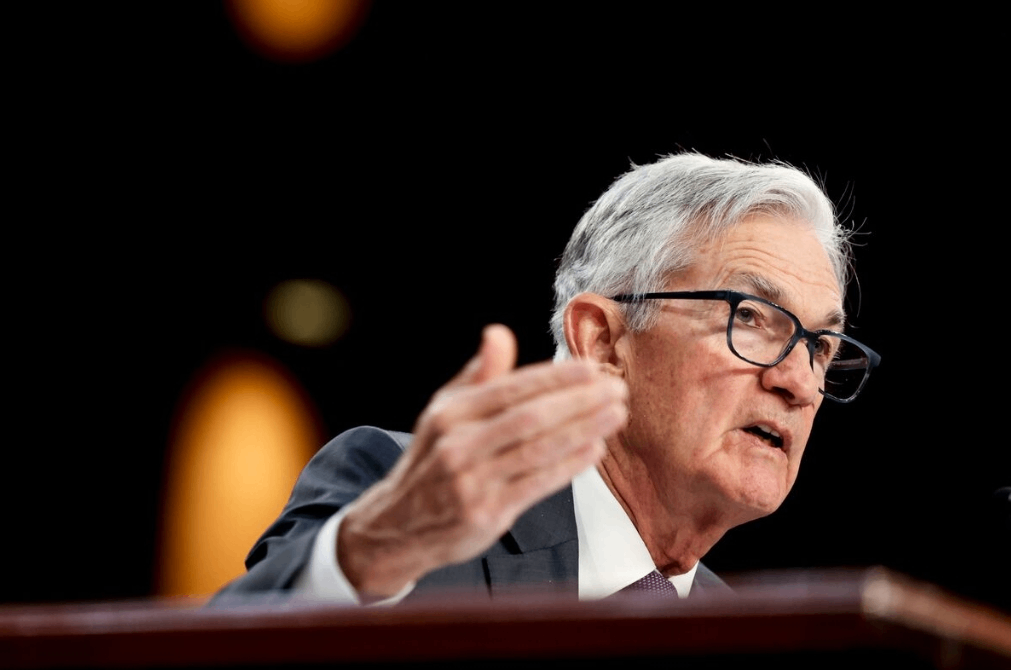Powell's summary of views on the first day of congressional hearing: Interest rates, inflation, and the labor market
Powell said the Fed will be patient when formulating policies and pay close attention to factors that may pose risks to economic growth.
On February 11, Federal Reserve Chairman Powell attended the semi-annual monetary policy hearing of the U.S. House Financial Services Committee. At this hearing, Powell discussed the current situation of the U.S. economy, financial supervision, the potential impact of government policies on the economy, and Banking industry risks. A number of key topics are elaborated in detail.He made it clear that despite many challenges, the U.S. economy has still shown strong resilience, and the Fed will remain patient when formulating policies and pay close attention to factors that may pose risks to economic growth.
Powell emphasized at the hearing that the fundamentals of the U.S. economy remain solid, GDP growth remains at a healthy level, and the job market has also shown stability.He pointed out that the labor market has gradually returned from its previous extreme tension to a more balanced level, and that despite the slowdown in employment growth, overall market conditions remain good.Wage growth has moderated and is in line with productivity growth, indicating that the job market is not the main source of current inflationary pressure.
In addition, Powell mentioned that consumer spending remains strong, corporate investment has rebounded, and manufacturing and service industry activities are expanding. These factors together support the resilience of the U.S. economy and show no obvious signs of recession.However, some lawmakers have expressed concern about the Trump administration's recent policy adjustments in trade, taxation, immigration and regulation, and are worried that they may have an adverse impact on economic growth.Powell responded that these policy changes have indeed increased uncertainty about the economic outlook, and the Fed will pay close attention to their potential impact and maintain its independence and data-dependence in policy decisions.On fiscal policy, lawmakers expressed concerns about the rising fiscal deficit and government debt levels in the United States.
Data from the U.S. Treasury Department shows that government debt has exceeded US$34 trillion and the fiscal deficit continues to widen.Powell pointed out that in the long run, high government debt will limit the flexibility of fiscal policy and pose a potential threat to future economic growth.He emphasized that the Fed's responsibility is to manage monetary policy, while fiscal policy should be the responsibility of Congress and the Treasury, and called on Congress to adopt responsible fiscal policies to ensure fiscal sustainability.
In terms of banking supervision, Powell admitted that the Silicon Valley bank failure exposed loopholes in the banking supervision system. The Federal Reserve has taken a series of measures to strengthen supervision of regional banks and is considering imposing stricter capital requirements on medium-sized banks to improve its ability to resist risks.In addition, the Federal Reserve is also studying how to improve banks 'liquidity management to prevent sudden outflows of deposits leading to bank bankruptcy.He emphasized that despite the above measures, the U.S. banking system is generally sound and depositors need not worry about the security of the banking system.
Regarding the Central Bank Digital Currency (CBDC), Republican Senator Bernie Moreno asked Powell if he would launch a CBDC during his term, and Powell made it clear that he would not.This statement ended long-standing speculation about whether the Federal Reserve would follow other countries to launch CBDC.Powell pointed out that the Federal Reserve has launched the FedNow payment system, which can meet many of the functions envisioned by the CBDC, so the Fed does not see the need to issue central bank digital currency.
At the same time, former U.S. Treasury Secretary Lawrence Summers recently issued another warning about U.S. fiscal and monetary policy.He pointed out that this may be the most sensitive moment for inflationary pressures to rise again since policy mistakes triggered severe inflation in 2021.Summers emphasized that signs of strain in the job market, such as the sharp increase in wages in January's jobs data, have provided a background for a potential recovery in consumer prices.
In addition, the Trump administration's recent move to increase tariffs on imported goods may also have an impact on price levels.Summers urged the Fed to remain vigilant about price pressures and believes further interest rates may not be cut during the current cycle.He pointed out that a survey by the University of Michigan showed signs of rising inflation expectations, while another survey by the New York Fed also showed an increase in price expectations.These data indicate that market expectations for future inflation are changing and may have an impact on the Fed's monetary policy decisions.
According to public information, the Federal Reserve's January interest-rate negotiation statement showed that the target range of the federal funds rate would remain unchanged at 4.25%-4.5%.Last year, the Federal Reserve cut interest rates by a total of 100 basis points.

·Original
Disclaimer: The views in this article are from the original Creator and do not represent the views or position of Hawk Insight. The content of the article is for reference, communication and learning only, and does not constitute investment advice. If it involves copyright issues, please contact us for deletion.